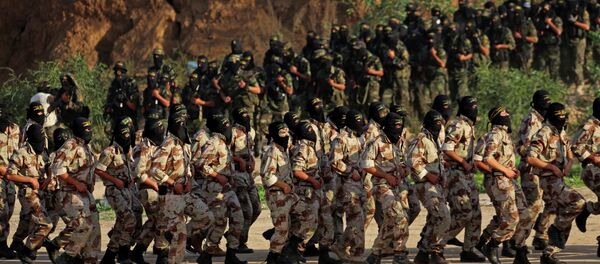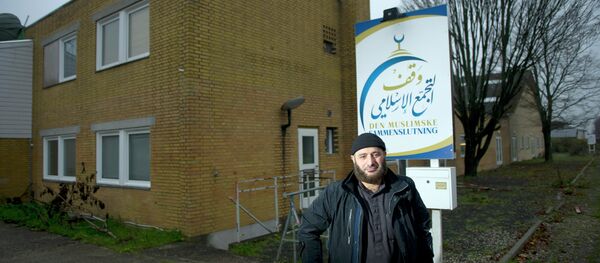Turkish authorities are currently in possession of a list 10,000 potential names of people who could travel through the county to Syria to join Islamic State extremists.
Grainy footage has also emerged of the three British school girls crossing the Turkish border into Syria. The teenagers from East London left their homes on February 17. The two 15-year-olds and 16-year-old flew to Turkey from Gatwick with Turkish Airlines.
CCTV images have shown the teenagers waiting at a bus stop in the country's capital, Istanbul. They are then thought to have crossed the border into Syria.
Turkey's deputy prime minister said officials hadn't been given sufficient warning about their disappearance which meant they weren't able to intercept the three teenage girls.
Why otherwise intelligent teenage girls are joining #ISIS http://t.co/FX1BJOKkZi #IS #IslamicState #terrorism pic.twitter.com/plS4hCjhad
— The Courier-Mail (@couriermail) March 3, 2015
Counter Terrorism expert Professor Hamed El-Said from Manchester Metropolitan University says Turkey's central geographical position is convenient.
"It's proximity, and the long borders it shares with Syria and Iraq that make it a convenient transit point for foreign fighters from Western countries who travel to Syria and Iraq to join ISIL", said El-Said.
"Turkey shares almost 750 miles with Syria and Iraq, two failed states whose security forces, particularly along the Turkish Syrian border, wield limited and isolated control.
"Controlling the entire Turkish-Syrian border requires an enormous amount of human, financial and military resources, which no one country alone can bear."
Professor El-Said says intelligence sharing between countries is vital.
"Everything of course is about intelligence and this where the issue of intelligence sharing becomes vital."
Meanwhile three other British teenagers who left London and flew to Turkey via Barcelona, Spain, were detained and sent back by Turkish officials who had been alerted by Britain.
"Officers alerted the Turkish authorities who were able to intercept all three males preventing travel to Syria", a police spokesperson said. The two 17-year-olds and a 19-year-old from London have been bailed.
Officials in Turkey say, "This is a good and clear example of how the security cooperation between Western intelligence agencies and Turkey should work".
But intelligence sharing is only one part of the story, according to Professor El-Said.
"The other part relates to why individuals choose to leave life in Western societies and join a nihilistic ideology."
And it is here that Professor El-Said believes that knowledge is limited.
"We need to develop a better understanding for conditions conducive to radicalisation and extremism that lead individuals to commit a violent extremist act, either nationally or in foreign countries", he says.
"Many countries have responded to some terrorist acts, such as those which recently occurred in Paris, Belgium and Canada, by ramping up security measures and further empowering an already empowering security force."
However according to El-Said, this does little to get to the root of radicalisation.
"This might succeed in stopping some individuals from crossing into Turkey to join ISIL and will certainly fill up our prison systems. But such measures do little to answer the question of why they attempted to leave western life behind and join a nihilistic ideology in the first place."
"Nor does it answer the question of why some individuals are more prone to radicalisation than others and why they even attempt or attempted to commit violent extremist acts," says El-Said.
EU Ministers of Education are meeting in Paris today to discuss new measures to tackle radicalisation across the European Union.
Education Minister Jet Bussemaker thinks that teachers need more support in highlighting the issue of radicalisation in schools.
According to the Minister, schools cannot deal with this issue alone.
Bussemaker and State Secretary Sander Dekker are proposing a special training course be made available for teachers to help them spot the signs of radicalisation in school pupils.






